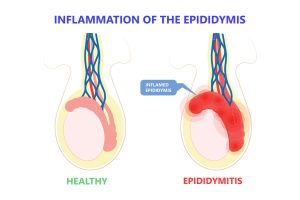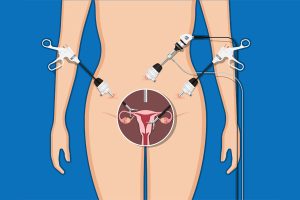Various medications and other chemical substances can interact with each other causing rather nasty outcomes. It specifically goes for antibiotical drugs with alcoholic liquors. For example, consuming alcohol while taking an antibacterial drug, such as tinidazole or metronidazole, leads to an occurrence similar to acute alcohol intoxication (throwing up included).
But not all drugs are the same. So what about doxycycline and alcohol use? Can you indulge yourself in one or two shots when battling an infection, or is it a really bad idea? In this article, we will find answers to these questions.
Doxycycline and Alcohol Side Effects
Good news first: there were no documented direct doxycycline interactions with alcohol. But we still need to consider the fact that these two have some particularities of metabolism that make them an undesirable combo. Here is why.
Alcohol
Firstly, the researches show that the immune system of persons regularly drinking alcoholic brews might get weaker. It is even more important for those getting doxycycline treatment. The reason is simple: by doing this, one impairs the body’s ability to eliminate harmful bacteria that caused a disease.
Secondly, there are studies showing that drinking when on doxycycline is able to decrease its concentration in blood, thus making it less working. Even worse, the reduced antibiotic‘s efficacy remains even when the patient stopped consuming alcohol-containing products.
Doxycycline
Another argument for not mixing doxycycline with alcohol is that both are processed by the liver, and it may prove not able to break them simultaneously. This can get you intoxicated from a smaller dose than usual.
Risks
So the combination in question can result in a reduced effect of the medication and an increased risk of alcohol poisoning. But there is more:
- Gastrointestinal disorders from the antibiotic added to some people’s reactions to intoxication by alcohol can result in having the urge to throw up.
- Dehydration. Treatment can lead to diarrhea as well. A person loses their body water with a very liquid stool which gets intensified by alcohol-induced dehydration.
- Headache. Doxycycline can cause benign intracranial hypertension which is increased pressure inside the brain. And spirit beverages elevate one’s blood pressure. The combination of both can lead to a very painful headache.
- Damage to liver and kidney functions. The liver helps your body to get rid of toxins, and the kidney excretes waste. When overloaded with substances to process, they may get injured.
The Basics of Doxycycline
Doxycycline is an antibacterial drug. It belongs to the class of tetracyclines with a bacteriostatic mechanism of action. This means it stops bacteria from reproducing giving the immune mechanisms an opportunity to destroy them and eliminate them from your body. In medications, this antibiotic can be present in the form of hyclate or monohydrate which are different types of salts. The main active agent in the compound stays the same, so these generics are interchangeable.
Doxycycline Uses
Doxycycline is used in parenteral (injection) and oral form (pills, tablets, etc.). It is indicated for the treatment of various infections, such as:
- Rickettsial;
- Sexually transmitted;
- Airways-related;
- Ophthalmic;
- Dermatologic.
It can also be administered in combination with other medications to treat malaria or amebiasis, or as a substitute in cases when the patient cannot be treated with penicillin.
Doxycycline and Body
The antibiotic is mostly absorbed in the upper part of the small intestine. It stops protein synthesis in the pathogens so that they cannot reproduce, and the organism’s immune response can deal with them before the infection gets worse.
Potential Side Effects
Depending on the individual sensitivity of the person, doxycycline can cause the following adverse reactions:
- GI tract: nausea, anorexia, glossitis, dysphagia, enterocolitis, diarrhea, vomiting.
- Skin: rashes, skin peeling off, photosensitivity.
- Hypersensitivity.
- Blood changes.
- Benign intracranial hypertension in adults.
Alcohol and Its Effects on the Body

People enjoy their drinks because of the pleasant short-term spirits effects, such as elevated mood, giddiness, relaxation, and reduced anxiety. However, even one-time intoxication can cause a lot of negative reactions, such as:
- Tachycardia (too fast heartbeat);
- Negative effect on the brain, manifesting in headaches, blackouts, confusion, dizziness, and speech and coordination disorders.
- Higher blood pressure.
- Dehydration.
- Nausea and vomiting.
How fast the person will feel the effect of the alcoholic beverage, depends on how strong is the drink. The concentration of pure ethanol in beverages varies from 4% in light beers to 40% and above in vodka and other drinks.
Long-term consequences of alcohol overuse include mental health issues, damage to kidneys, liver, and brain, heart diseases, etc.
Precautions and Recommendations
So, let us settle the debate: while being treated with doxycycline, can you drink? The answer is: yes, theoretically. There is no data about the horrible reactions following immediately after doxycycline interacted with alcohol. Nevertheless, to decrease the risk of any negative outcomes, you can take additional precautions.
Recommendations
Medical professionals who prescribed you doxycycline will likely give you a warning about alcohol to nullify all the risks related to the combined negative side effects of both.
Tips
If you want to be completely safe, you can wait a couple of days after you finished your course of medication to enjoy a drink. If the situation absolutely calls for it, you can arrange your relaxation time so that between taking medication and having a drink will pass as much time as possible: it will give your body time to detoxify.
Best practices
Although having a one-time event including alcohol while taking doxycycline will not likely do much damage, we advise you to avoid strong beverages and restrain from heavy drinking. Make a choice in favor of light cocktails with much water or fruit juice in them to somewhat compensate for dehydration, and keep it a rare, occasional thing. Remember that even the tiniest dose of alcohol can make your recovery longer.
Summary
Doxycycline is an antibiotic commonly used for the treatment of various infections. It has no direct interactions with alcohol, but the side effects of the two substances may combine and intensify. Also, alcohol may reduce the efficacy of the drug, and higher doses and longer treatment will be required.
There is no significant difference between various forms of the antibiotic: combining doxycycline hyclate and alcohol or doxycycline monohydrate and alcohol would have the same effect on the person.
FAQ
Can you drink alcohol with doxycycline?
Not the most effective way of treatment, but if you do not suffer from any liver or kidney issues, you can occasionally have one light drink.
How is doxycycline affected by alcohol?
Its concentration in the blood drops, and so does its effectiveness.
What happens if you drink alcohol with doxycycline?
It depends on your health, the strength of alcohol, and its dose. If you do it only once and avoid alcohol intoxication, much damage to your health is unlikely.
Does alcohol affect doxycycline?
Yes, by making it less strong.
Can you mix doxycycline and alcohol?
Generally, you should not, or do it with caution and responsibility: avoid strong drinks, getting inebriated, and taking the drug and the drink at the same time.







